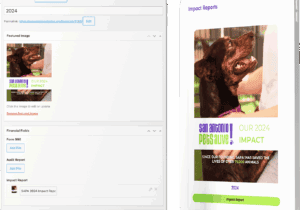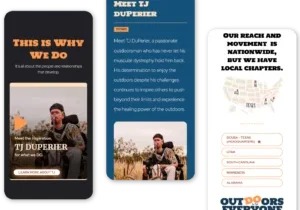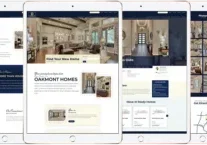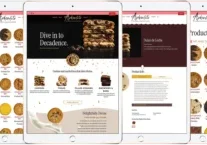Communication in a Crisis: Lightweight Apps for Rural Texas and Hill Country “Dead Zones”
Share this article.
What is your emergency plan? Even in San Antonio, communications were limited during the 2021 freeze. Besides emergencies, these apps are great for business.
The “Dead Zone” Dilemma We’ve all been there. You’re at your property in the Texas Hill Country, or maybe you’re stuck in the middle of a San Antonio “deep freeze” like the one in 2021. You have one bar of service. You try to send a text or make a call, and… nothing.
The native apps on your iPhone or Android are “heavy.” They require a lot of data just to say “hello.” When cell towers are overloaded or you’re in a rural area like Spring Branch or Canyon Lake, you need a “lightweight” strategy.
In tech-speak, lightweight means simpler, faster, and requiring fewer instructions to function. At Fat Dog Creatives, we help our clients (and their clients) stay connected even when the infrastructure lets them down. Here are the tools I recommend for reliable communication when seconds count.
1. Voxer: The Digital Walkie-Talkie
Voxer is my favorite for task-oriented work and rural life. It’s a push-to-talk (PTT) app that works on a remarkably weak signal.
- Why it works: It’s peer-to-peer and incredibly lightweight.
- The Rural Win: A friend of mine has property in the mountains with zero internet and almost no cell service. Voxer is the only app that consistently gets her messages through. It’s perfect for Texas ranch owners or contractors working in new developments around Johnson City where towers haven’t caught up yet.
2. Signal: Security Meets Efficiency
If you work in a regulated industry—finance, legal, or health—security is non-negotiable. Signal offers end-to-end encryption but stays much lighter than your standard texting app.
- The Advantage: It focuses on privacy without the “bloat.” It’s easier to use than native texting and handles low-signal environments with grace.
3. X (formerly Twitter): The Lifeline of the 2021 Freeze
During the 2021 freeze in San Antonio, the power went out, the water stopped, and the cell signal dropped to a crawl. I couldn’t load a Facebook page if my life depended on it—it was too bloated.
- The Survival Tool: I survived that week because of X. It’s built for fast, short bursts of data. While the city officials were struggling to update websites, local experts, like Bridget Willard, were live-tweeting critical “boil water” notices. I found out an hour before the official alerts hit.
- Pro-Tip: Create “Lists” of local emergency agencies (SAWS, CPS Energy, and COSA) so you don’t have to hunt for info during a crisis.
4. WhatsApp: The Popular (but Cautious) Choice
WhatsApp is incredibly popular and very lightweight, making it great for international communication. However, it carries some security risks (spyware vulnerabilities). Use it because your family in Europe is on it, but keep your “High Security” conversations on Signal.
What is Your Emergency Plan? Whether you are a repeat founder managing a team across the Texas Hill Country or a family trying to stay safe during the next Bexar County storm, your communication shouldn’t rely on “hope.”
Your phone is a tool—make sure you have the right “lightweight” apps installed before you actually need them.








